- Home
- Sonya Hartnett
The Best Australian Stories 2012 Page 4
The Best Australian Stories 2012 Read online
Page 4
The voice comes over the speaker, and again Suit-jerk plays translator, telling us there’s an electrical fault with the signals ahead and the train’s staying put. Greenie and the schoolgirl sit down.
We finish the rest of the bags and I turn to my seat, but Malamute-man tugs at my sleeve. Sit down? he says.
Oh no. One thing to pick up the man’s ratty old muff and another to sit down next to him and have a conversation. Lord knows he doesn’t need more conversations going on in that head of his. What if he likes me and decides to follow me off the train or something, or follow me home even?
That dress just so sucked, says one schoolgirl.
We’re totally cooler, says the other.
Please, the man says to me.
I’m no good at saying no to people, never have been, and that’s exactly the reason, exactly the reason why it makes so much more sense to avoid them altogether. No mess, no fuss. I’m thinking, boy, will I be glad to get home to the cat tonight.
I sit down next to Malamute-man, worrying about what we’re supposed to talk about and the cash at his feet. Worrying that Crotch-boy and the Crotchettes will come back to steal it.
One dead and thirty-seven injured in train crash, he says.
He’s not saying it like he said it before, as if it was some crazy talk, but like he’s heard the word of God, and it’s his mission in life to pass it on. I get hot all over and my eyeballs flicker.
Presentiment is what they called it.
What train? I whisper. This one?
Crotch-boy bursts through the carriage door, his friends laughing behind him, and Malamute-man shrinks in his seat like a worm who’s found himself at a bird convention. Crotch-boy’s swaying, something’s wrong with him, and I’m thinking maybe it’s drugs. He staggers to the seat in front of the schoolgirls and kneels on it, facing them. They lean back as far as the seat lets them.
Ya wanna feel? he says to them, grabbing at the space between his pants and his jeans.
Hey, says Suit-jerk. That’s enough.
Crotch-boy isn’t impressed. You wanna feel too? he says. Ya fuckin’ faggot.
Greenie’s off her seat, heading for the emergency button. The Crotchettes head her off. Crotch-boy laughs.
How d’ya reckon the pigs will get out here, he says, and he points to the bridge and the overpass and the cars way down below.
Suit-jerk’s on the phone. Crotch-boy notices Malamute-man and me.
Hey stupid, he says, happy birthday. Get his bags, he says to his boys.
They come towards us. Suit-jerk’s yapping, those girls aren’t helping, and Greenie’s got the Crotchettes in the way.
All these years I’ve been avoiding this. All this time I’ve been keeping it tidy.
*
Wait a minute, we’ll walk the dog together, I had said to Lev.
You don’t want to come, Lev replied, either with the dog or with me.
And the truth of it, after so many years of living in the house like strangers from the time Lucy left, was like a slap, because I’d never admitted it to myself, and I had never guessed that he’d known.
So I let him leave, and some young offender on drugs smashed him across the head, kicked the barking dog, and stole the five dollars Lev had taken to buy a coffee at the shop.
*
Even as I stand I know I don’t want to do this.
Leave him alone, I say.
Crotch-boy doesn’t pause. He pushes me aside.
Don’t touch me, I say, and even as I say it, I hear the tears coming, and of course Crotch-boy doesn’t take any notice, some stupid weak woman who wouldn’t know how to deal with an emergency if it came and spat in her face. He pushes me harder.
SIT DOWN!
Malamute-man has swollen up, and he’s climbing past me, shoving Crotch-boy back, and his arms are swinging left, right, left, right, and Suit-jerk is yelling that the cops are on their way, and the girls are screaming, and Malamute-man’s going chest to chest with Crotch-boy, pushing, shoving, and because Malamute’s bigger and heavier and madder, Crotch-boy is falling back and calling on the Crotchettes who are guarding the door, but now Suit-jerk is in there too, swinging, and Greenie has pulled a can of something out of her bag and is yelling, GET BACK, GET BACK!
Crotch-boy and his friends see the can and make a run for it through the carriage. The train jolts, and then starts moving.
Thank god, says a schoolgirl. The pair of them are upset mewling kittens and Greenie fusses over them, saying, There, there, and stuff like that, while Suit-jerk storms into the next carriage and I hear him asking, Which way did the dickheads go, who’ll come with me?
Malamute-man’s handing me a hankie, and I realise I’ve been crying all this time, and my throat is sore, because I’ve been yelling too, but I don’t remember yelling, and I don’t remember crying. He pats me on the shoulder, can’t remember how long since anybody patted me on the shoulder, makes me cry harder.
Sit down, he says, and I sit.
I believe you about the crash, I say. When’s it happening? How do you know?
He points to his funny eye. I see.
The train’s coming to the tunnel, and Malamute-man grabs hold of the rosary beads around his neck with one hand, and then he grips my hand with the other.
I didn’t love Lev enough, I tell him. Was it my fault?
Coming to the last turn, he says. Let us pray, and as the train enters the tunnel, and he shields my body with his own, it gets me thinking as to how the heart responds faster than the brain.
The Sleepers Almanac
So Far North
Sarah Holland-Batt
It has been a week since the Aboriginal boy came to squat in the shed down the road. He has been watching. The shed is on the boundary of the old McCullough place, a shoddy A-frame of sheet iron and scrap cladding. The McCulloughs cleared off once talk of the blight started spreading north, and when the place didn’t sell, left the land to grow over. The boy must have a billy rigged over there, because the electricity has been off for months.
He does not like the look of the boy. The boy is rangy tall and has been wearing the same clothes all week: a too-loose shirt and jeans. He also carries a rifle. In the evenings he disappears with it slung over his shoulder into the state forest. He is killing things in there. All week the old kelpie, Bully, has been bringing in animal skins with bullet holes in them. Possums, sugar gliders. Soft things that come out at night. There is something strange about the boy, something not quite right. So he has been watching. And the boy has been watching him too, he can feel it. Out in the thicket of leaves, on his trailbike, he can feel eyes on him.
There are too many places around here a body can hide. Whiskygrass as high as the windows around the house, then the plantation’s fringe that gives unbroken cover all the way to the road’s edge. The crop is towering this year, plants twice his height, thick and dark. When he stands in the middle of them, huge ragged leaves cross over each other in a humid weave that blocks out the sky. Some of the fruit is ready to cut, heavy hands of green bananas with skins so bruisable they will need wrapping in foam before they are packed in crates.
The harvest will wait until the new pickers come. Illegals probably, but they will get the job done. The last lot were drifters, but they were the best he could get. Town people warned all the good ones off, so he was lumped with two kids who spent their time off talking hippie stuff, night swimming in the creek, smoking and stringing hammocks in the gully. The girl had huge drooping tits and a cone shell through her ear. Her boyfriend had tattoos on his forearms and stank like tobacco. Turned out in the end they were junkies. He found a blackened spoon down near the creek and sent them both packing. Hard to get anyone to come up here at all. Hard to get help so far north.
*
At m
idday the house is a hotbox. He leaves the back door open and opens the kitchen shutters. No breeze. He has been bagging all morning, tying blue and silver striped sacks over the stems. Backbreaking work and too hot for it, worse without help.
He lights the gas stove and puts an enamel pan on the ring of blue flame. He empties in a can of corned beef. The pink brick of meat hisses and sticks to the side of the pan. Bully is at his feet, jowls wet. When it is warmed through he scrapes it onto a slice of bread. He drops a few spoonfuls into Bully’s bowl and the dog noses into it.
Bully is missing part of her lower jaw and makes a terrible wet noise as she eats. He tries to ignore it. The sound is enough to put him off his lunch.
He is waiting for the water to run cold in the sink when he sees the boy. Just a glimpse through the fringe of banana leaves: his face, the whites of his eyes. He fumbles in the drawer for his butchering knife, but by the time he gets his hand on it the boy is gone. He thinks irrationally that the boy has crossed the distance between the plantation’s edge and the house and is standing beneath the kitchen window like a shadow.
He resists the urge to stick his head out of the window and check. He reminds himself that he has been alone for a long time, maybe too long. The boy is stealing bananas, nothing more.
*
That afternoon he is inside boiling tea when the phone rings. There is no chance it will be Jean, none at all, but he picks it up.
Yep, he says.
I know what you fucken done. It is a man’s voice this time.
You got the wrong number, he says.
No I fucken don’t, the man says. You hear me? I fucken know.
*
Down in the long hot idleness of the night he wakes to hear the plantation whispering around the house. A lush shifting of leaves, the hush of prickling silence. Bad dreams. He can hear Bully breathe on the floor beside him. There are brown snakes out there in the leaf litter, poisonous things muscling through corridors of dead matter, curling in layers of husks and fronds. At night this place is oppressive, seething with roots and suckers, too dangerous to walk in. He sits up. Out in the absolute darkness, a sound like trickling rainsticks. When he is tired like this he imagines the plantation creeping towards the house, all those ripening things crowding him, leaning in.
He reaches for the lamp switch. His room is small and plain: a bed with a blanket kicked to one side, a closet, today’s shirt over the arm of a wicker chair. It looks foreign to him. He goes to the window and pulls the shutter closed.
The boy will be out there somewhere in the dark of the night now, hunting. His mind strays to the forest’s edge. Past the wire fencing are the cool ferns, staghorns that ray out like green suns from the colossal trunks. Strangler figs that braid around the bark and sap the trees, plaiting their way up. And above are the night animals moving from branch to branch whose huge blind eyes shine in the blackness and whose soft bodies unnerve him, chase him in dreams.
When he was a child and afraid of the night his mother would sit with him. He thinks sometimes of her cool quavering voice, calls it up. He imagines her face, the seam that ran from lip to nostril where the darkness of her hare lip was stitched shut.
*
The next day he packs the trailer and drives it to the boundary of the McCullough place. The trees down here are not even close to ready for bagging, but he pretends to check them anyway. He works the rows methodically. Bully walks with him, the skin of her belly wobbling low and stretched.
When he sent her out for a piss earlier that morning she came back with a possum’s pelt, perfectly skinned from the neck down, paws intact. The paws were skinny grey with slate-coloured claws. There was a small ragged hole above the hindlegs. When he picked it up the fur was thick and coarse. He could feel the weight of the bones in its limbs like sinkers.
Down by the shed there is no sign of the boy. He walks to the stump at the edge of the property. The shed is empty. The walls are panels of fibro siding and the roof is a patchwork of rusted-out scrap iron. The door is a knock-up job, a piece of green PVC usually used for greenhouse roofing. Hanging over a pile of sleepers there is a filthy pink blanket. Just to the left of the shed there is a billy rigged over a pit. The boy could be inside now, sleeping.
Bully has strayed over near the shed and is sniffing in the grass.
Bully, he says warningly.
He follows her and that is how he spots them in the grass. Empty cans: corned beef and syrup peaches. His. The boy has snuck into his pantry and taken them. The boy has been inside his house.
He yanks the door open. Nothing. The shed is hot and closed up and has a sharp reek of rust and oil. On the floor there is a sleeping roll on top of flattened cardboard boxes. Beside it are a yellow rucksack, a flask and a torch. On the old sorting bench, he finds a box of matches and a pouch of Drum tobacco, a pocket knife and a comb. There are old things of the McCulloughs’, too: an old tine ripper, a few pallets stacked up against the wall, lengths of hose and rope. The shed has been in disuse for years, well before the McCulloughs left; the plantation goes for hectares and the huge cooling sheds and house are a twenty-minute drive down the mountain.
He looks at the rucksack. If he opens it he is no better than the boy. He leaves the musty shed and wonders why the boy has come here, where he came across the rifle, how many times the boy has broken into his house.
*
Later he takes Bully for a long walk to the gorge. He thinks often of the time it has taken the creek to insist its way through the rock. Today it is a quiet place full of the sound of water, but when the creek swells after storms the noise is deafening. It is a monstrous sound, violent, like the roar of longhaul trucks. He looks up. Above the large faces of rock wet with moss and lichens, ferns are growing. They nod down secretively.
Bully is wading in the creek.
The creek is low today, though there are several waterholes close by where it is possible to swim. Even in huge rains their surfaces are silent and unmoving.
He and Jean used to come here to swim. She would breaststroke out, ripples rolling out in front of her, then call him in. He was never much of a swimmer. He would ease his way in cautiously, shot with a plummeting panic at the blackness below. That is his idea of fear: dead things brushing his feet, the slime of cold smooth stones.
This is also the place he brought the daughter of the woman who came picking that year. Only a few times, it is true, but that was enough. She was fourteen, Vietnamese. He still does not know what made him do it. When he tries to reinhabit those thoughts, that desire, he finds he cannot. It was not lust, exactly, but something else, the precise nature of which is lost.
He stands at the water’s edge. Huge dragonflies are mating just above the surface. The sheer mechanics of how they hover there without drowning is a mystery. They move as a single thing: two heads and sets of wings.
When he brought the girl down here, in the joy of the act, the force of it, he felt himself becoming heavy as stone. It was as though he was moving below the water’s surface and the water was thick as molasses. When he tries to sieve out details of that time, they arrive in flashes, swift-moving, like gold flecks in a pan, too small to be of any use to him or anyone. Nothing is left of that time, nothing at all. He used to think you had to put time between yourself and a thing like that to understand it, but he was wrong. Time only breaks things down.
*
He is going to put a padlock on the pantry to keep the boy out. He will do it after breakfast. The boy must be a runaway from a boy’s home or borstal. The problem of how and why the boy has found his way up here niggles at him, strikes at his skull like a blowfly.
He opens a can of beans and pours it into the frying pan with some strips of bacon from the freezer. Supplies are getting low. Soon he will need to drive down the mountain to town, where he will face the same grudging silence at
the supermarket, the petrol station, the pharmacy.
Petty gossips, all of them. Full of talk and hate.
Although he is not yet what he considers old, lately he has come to wonder about what will happen to him when he dies. If it happens when the pickers are here his body will be discovered quickly. Any other time of the year it could be months before someone finds him. And what if no one comes? What happens then? He scarcely knows. Since Jean left, the scope of his life has become so minuscule that its particulars are known only to him.
He opens the kitchen window and whistles for Bully. That is when he sees the boy. The boy is standing out in the open grass between the plantation and the house, looking up at the window. It takes him a second to really see what the boy is holding. It is Bully. The boy has Bully in his arms. He can see a scrap of the pink blanket dangling from her hindleg.
He is running down the back stairs and towards the boy before he realises what he is doing.
You bastard, he yells. You mongrel bastard. I’ll kill you.
The boy holds the dog out in his arms awkwardly. The rifle is dangling loosely over his shoulder.
Get away, he yells at the boy. Put her down.
The boy just stands there.
Are you slow or something, he snaps. Fucken put her down.
The boy lets the dog down in the grass. Bully takes a few steps. There is something wrong with her leg.
He looks at the boy. What the fuck have you done, he says.
Up this close the boy does not look well. He is too thin and there is a swelling the size of a cricket ball on his right ankle where the skin is taut and shining.
What the fuck have you done, he says again.
The boy gives him a sideways look and runs pell-mell into a row of banana trees.
He takes one look at Bully and goes haring after the boy through the whipping leaves. He does not know why he is running or what he will do when he gets hold of the boy. His heart is walloping in his chest and there is a huge rushing in his ears. He is running as fast as he can, the most he has run in years. The boy dodges into another row and disappears. He veers right and stops to listen. He does not know what he will do if he catches the boy. The boy is much swifter and younger, and although he does not think the boy will use it, there is still the question of the rifle.

 Butterfly
Butterfly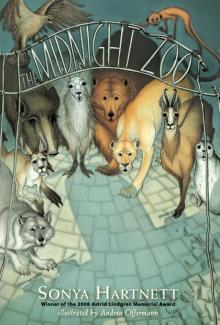 The Midnight Zoo
The Midnight Zoo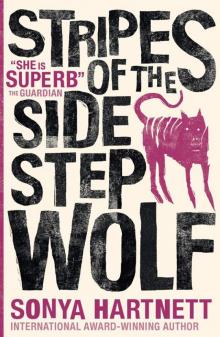 Stripes of the Sidestep Wolf
Stripes of the Sidestep Wolf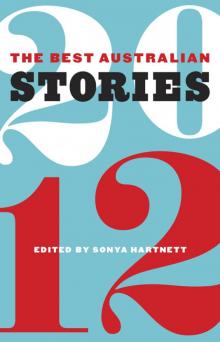 The Best Australian Stories 2012
The Best Australian Stories 2012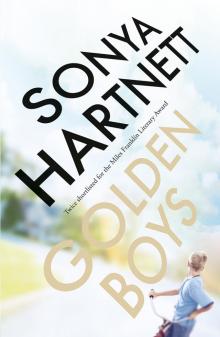 Golden Boys
Golden Boys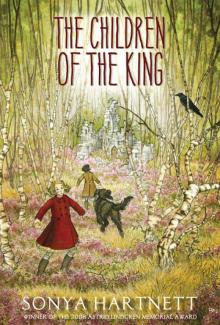 The Children of the King
The Children of the King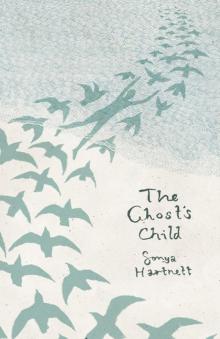 The Ghost's Child
The Ghost's Child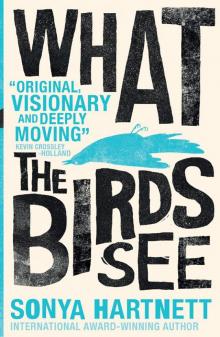 What the Birds See
What the Birds See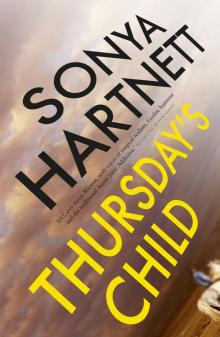 Thursday's Child
Thursday's Child